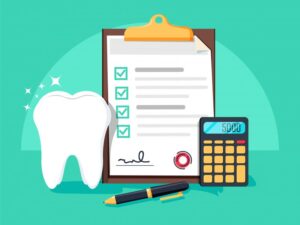
After years of formal training at dental school and tons of hours of continuing education coursework, you’ve learned just how complex dentistry can be clinically. Unfortunately, even the administrative logistics can be almost just as complicated. If you want to set your practice up with financial stability, you need to have a grasp on dental procedure codes, but don’t worry if you have plenty of questions. Here are only some examples of the most common questions about this topic and helpful answers.
What Are Dental Procedure Codes?
The Codes on Dental Procedures and Nomenclature, also known as the CDT code, was created by the American Dental Association (ADA) to decide a country-wide system of filing insurance claims clearly that comply with HIPAA requirements. The ADA legally must update the CDT code annually, making sure this guide is completely accurate and continuously ready to use on insurance claims.
Why Do I Need to Know CDT Code Well?
The coding information on your patient’s claim directs insurance companies to specific covered services, asking these companies to pay their portion for the patient. If you do not use the appropriate code for the procedure(s) on the paperwork, their claim may be denied, which means you’ll have to spend more time correcting the mistake and/or wait longer for payment. That’s on the light side!
In some cases, incorrect coding can lead to fraud criminal charges or a damaged reputation among your patients. If your team cannot accurately handle insurance claims, your patients may question your clinical competency as well. Plus, they may get frustrated, question your integrity, and choose another nearby dental office.
Where Can I Get More Information about CDT Codes?
The ADA releases a guide to CDT codes each year to help answer the most recent questions about coding. In fact, you can easily purchase and/or download this regularly maintained information on the ADA store’s page. As innovative technologies and treatment techniques continue to develop, the ADA will keep this information updated and accurate for the latest rules and coding expectations. If you still have questions or need further guidance, you can contact the ADA directly if you are an ADA member.
Why Is Outsourcing Your Dental Billing a Good Idea?
Staying on top of an ever-changing industry and coding system can be difficult and time consuming to say the least, especially if only one member of your team is in charge of dental billing. Instead of putting all that pressure on one person, you can contract a group of professionals who all specialize in this type of billing. When working with Dental Support Specialties, you don’t have to wonder if the team knows what they’re doing—it’s what they do every day!
These four questions don’t cover everything you need to know about dental procedure coding, but they can get you started and pique your interest. By completing the claims forms correctly, you can receive payment on time and help your practice turn into a thriving business!
About Dental Support Specialties
Dental Support Specialties consists of a team of administrative dental professionals with years of experience. We have been offering remote assistance to practice throughout the US for more than 15 years, and we spend significant time working with insurance companies and the ADA to make sure CDT codes are accurate, making for a smoother claims experience. Would you like to talk to us about ways we can help you make the most of your dental practice? Contact us today!
